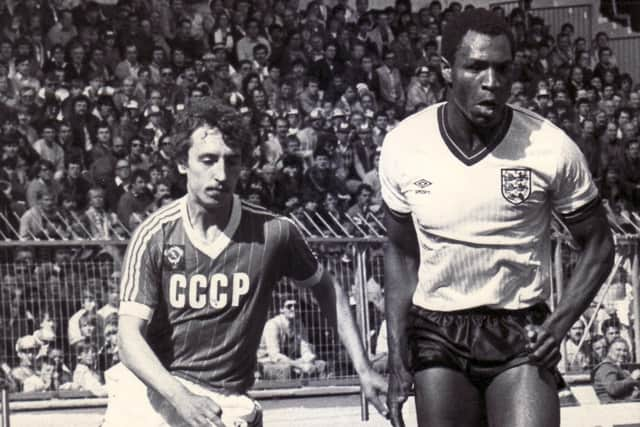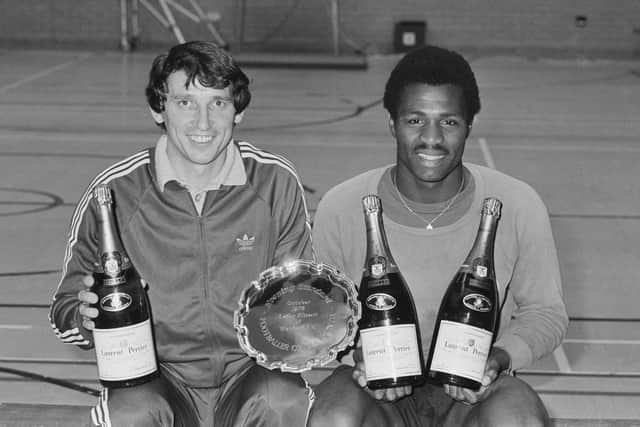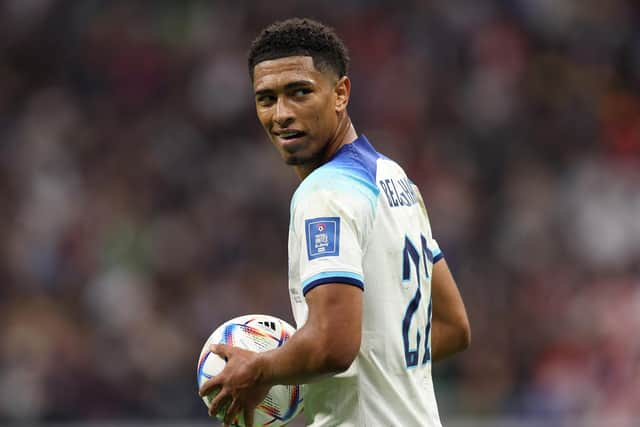Why trailblazer Luther Blissett is still fondly recalled for his breakthrough moment 40 years ago
Events against the tiny landlocked nation 40 years ago today (December 15) were somewhat different.
It had nothing to do with the scale of England's win either, handsome though it was.
A 9-0 triumph was seismic for one huge reason.
Advertisement
Hide AdAdvertisement
Hide Ad

The record books denote that Watford striker Luther Blissett – one part of that outstanding Hornets side who were one of the stories of the first half of the Eighties under Graham Taylor – scored a hat-trick.
More importantly, he became the first black player to score in a full English senior international, watched by a crowd of under 35,000 in a group qualifier for the 1984 European Championships on a landmark December evening.
Blissett was the fifth BME (Black and Minority Ethnic) to make his debut for the full England side.
Nottingham-born Viv Anderson was the first and the late, great pairing of Cyrille Regis and Laurie Cunningham, members of that fine West Brom line-up of the late Seventies, followed before Luton Town's stylish midfielder Ricky Hill got the call.
Advertisement
Hide AdAdvertisement
Hide Ad

Cunningham had earlier represented the Under-21s and became the first black player to score for an England side, netting the winning goal in a 1-0 win over Scotland at Bramall Lane, Sheffield.
West Ham defender John Charles was actually the first BME player to represent England at any level when he earned three youth caps in 1962.
In the early Seventies, Ben Odeje and Cliff Marshall were the first to play for England schoolboys.
To the present day, over 100 black players have now been called upon by England at senior level.
Advertisement
Hide AdAdvertisement
Hide Ad

Since Anderson made his bow in November 1978, just over one in every three players making his England debut have been BME.
Brian Deane was the first Yorkshireman and he was followed by another Leeds lad in Aaron Lennon, a Sheffielder in Kyle Walker and Huddersfield's Fraizer Campbell.
Others on the list, in chronological order, are Leeds-born Fabian Delph, Doncaster's Danny Rose, Bradford's Mason Greenwood, Sheffield's Dominic Calvert-Lewin, another Leeds lad in Kalvin Phillips and York's Ben Godfrey.
Birmingham-born Micah Richards was also raised in the Leeds suburb of Chapeltown.
Advertisement
Hide AdAdvertisement
Hide AdThe first black player to be called up to an England squad was London-born Jack Leslie, way back in 1925.
The prolific Plymouth Argyle later received communication that his call-up was cancelled because the management did not realise he was 'a man of colour'.
In October, Leslie – who died in 1988 – was posthumously awarded a cap by the Football Association, while a statue was also unveiled outside Argyle's Home Park base.
Attitudes have mercifully changed since the 1920s with the likes of Rio Ferdinand, Paul Ince and Sol Campbell having gone on to captain England in modern times.
Advertisement
Hide AdAdvertisement
Hide AdBut while overt racism thankfully ended a good while ago in terms of selection, there were claims, as recently as the early 1990s, that the FA tried to impose an unofficial quota system on the number of black players an England manager should be allowed to use.
This was chronicled in new book about racism within football Pitch Black, written by Emy Onuora, brother of former Huddersfield and Sheffield United forward Iffy.
It included a passage in which an anti-racism in football campaigner claimed that former England manager Graham Taylor admitted to him he had been summoned by two members of the FA’s hierarchy and told “in no uncertain terms” he should not go beyond a certain limit. There was no suggestions that Taylor adhered to it.
Back in 2001, the governing body apologised to black former players for the racism they suffered in the 1970s and 1980s and admitted it could have done more to condemn the abuse and harassment they endured during their professional careers. Today's England side are now, refreshingly, one of the most racially diverse international teams in world football. They are led by a young and gifted black footballer in Jude Bellingham who is widely expected to become one of the best players in world football in the coming years.
Advertisement
Hide AdAdvertisement
Hide AdAt the current World Cup tournament, he became the youngest BME player to reach 20 appearances for England in the recent group game with Wales. He is also just the second to reach that milestone while still a teenager.
Bellingham, a player blessed with enormous talent on the pitch and gifts in the way he conducts himself off it, is the poster boy for the England of today and the future, as are the likes of Bukayo Saka, Marcus Rashford, Trent Alexander-Arnold. BME players who do this country and their heritage proud.
England has a lot to thank its BME trail-blazers such as Anderson, Cunningham, Regis and Blissett for.